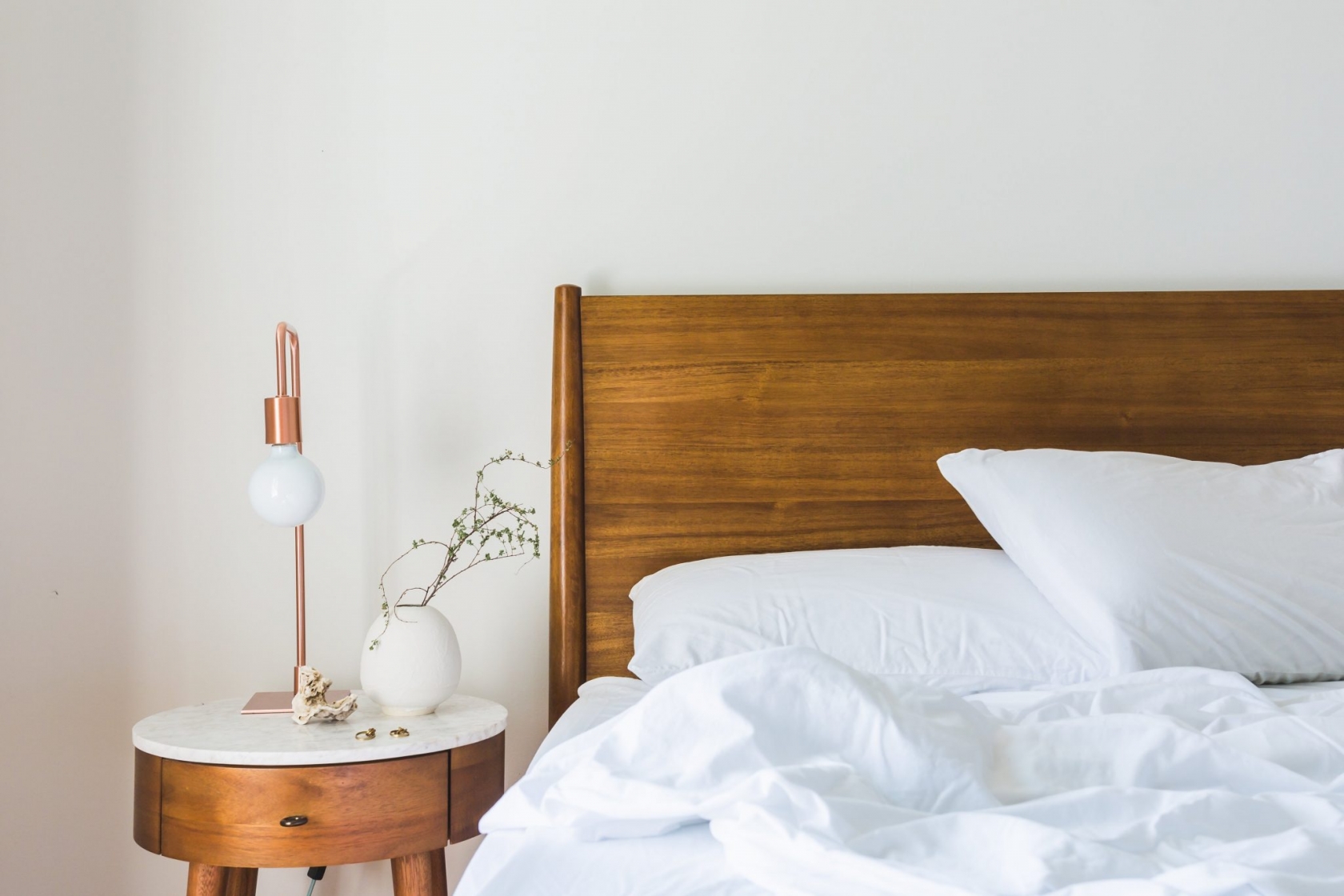Struggling to come to terms with the idea of waking up early in order to return to the office? Here’s how to fix your routine, according to a sleep expert.
With the instruction to work from home lifted and coronavirus cases falling, the next couple of weeks will see many people return to the office as part of a hybrid or full-time approach.
If you’ve worked from home over the last month or so, chances are this shift will come as a little bit of a shock to the system – especially when it comes to waking up early in order to commute.
Not only that, but the dark and dreary mornings of January can make it even harder to pull yourself out of bed and into the shower.
So, what can you do to make the transition back to 9-5 life a little easier?
To find out more, we spoke to Hope Bastine, psychologist and resident sleep expert at SIMBA. From creating ‘sleep pressure’ to picking the right alarm tone, here’s what she had to say.
1.Use gradual adjustment to get your sleep schedule back on track
If you’ve been going to bed late and waking up late while working from home, you might find the prospect of waking up at 6am a bit of a shock. To rectify this, Bastine suggests taking things slowly.
“Pick a goal to wake up and go to bed and micro-adjust your schedule incrementally towards your goal time,” Bastine recommends. “Aim to give yourself two weeks and start with waking up 15 minutes earlier a day.”
In the meantime, you could use time-saving techniques to get ready quicker in the morning, such as pre-making your breakfast or washing your hair the night before.

2.Choose a mood enhancing alarm tone
“Our mood generally improves progressively throughout the day – and a happy employee generally means a more productive one. If you’re a night owl however, getting up early can offset your mood more than if you’re an early bird,” Bastine explains.
“For night owls, waking up with a jolt can trigger your stress-alter system and set you off on a grumpy start to the day. Set your alarm to your favourite song or a tone that gradually increases in decibels and pace so you can be eased more gently into the day ahead.”
3.Create a sleep sanctuary
Making your bedroom a more comforting and inviting space is a great way to give the room relaxing connotations and make switching off a little easier.
“Night owls are more likely to suffer from Sunday Night Insomnia or the ‘Sunday Scaries’ when there’s a perceived added pressure to feel you must perform at your best on Monday morning,” Bastine explains.
“To counteract this, try to make your bedroom environment the most enticing space and save all your favourite relaxing activities until the end of the day to make it a place you want to be rather than a space to avoid.
“Ensure you have a mattress that properly supports your spine and keeps you cool to reduce overheating, so that your immune system can operate at optimal temperature and to reduce pain, discomfort, and anxiety.
“If you’re really struggling, I’d also recommend The Orbit™ weighted blanket designed to help tackle sleepless nights caused by stress and a racing mind by harnessing the science of ‘deep pressure therapy’. There is burgeoning evidence suggesting the benefits of being enveloped in a heavy cocoon can lower anxiety and stress levels thereby allowing us to settle down for a nice night’s sleep.”
4. Make the evenings boring
“This is especially important for night owls – you need to trick your body into thinking the evening is boring in order to make you feel sleepy,” Bastine explains.
“Reduce the activity level and sensory stimulation in the evening earlier than usual by having the lights and volume low and engaging in more off-screen relaxing activities at least one hour before bedtime.”

5.Create ‘sleep pressure’ to help you get to bed earlier
Sleep deprivation may sound scary, but by making yourself tired, you should find it easier to start going to bed a little earlier, Bastine explains.
“If you are someone who needs eight hours of sleep a day, sleep six hours for about three-four days to make yourself tired (it’s easier for us to stay up later than it is for us to wake up early, so waking up earlier to make yourself tired is a simpler formula). After about three days you should create enough sleep pressure to start going to bed a little earlier,” Bastine explains.
“Then give yourself about six days to catch up on any lost sleep and adjust to your new schedule.”
Images: Getty/Pexels
Source: Read Full Article
